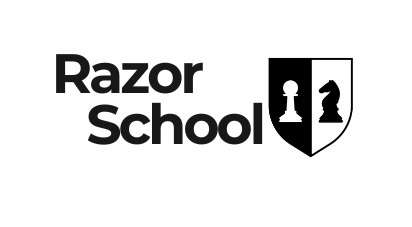2nd Edition
Welcome to the second edition of SpaceFold a newsletter with resources, best practices, and thought leadership to help the journey of founders and emerging professionals.
Startup Founders
Tech Stack for Payment Process
I am following up on the first edition of the available SaaS platforms; my friend Arash Adami and I both have nonprofits, essentially a C-Corp, but with different tax structures but need customers/clients and money. We spent some time mapping out the payment process.
Here is what Arash mapped out:
WEBSITE: WordPress seems to be the best for flexibility. I use it for my company and nonprofit.
PAYMENT Platforms: What are people using? It seems that Stripe is now the standard. And maybe a second one is PayPal.
BANK: US Bank seems to have the best fee structure for nonprofits (almost no fees).
ACCOUNTING: With TechSoup, $75/yr for QB is insanely cheap, so I can't imagine anyone is using anything else, right? https://www.techsoup.org/intuit
CRM: This is the big one. It needs to talk to your payment plugin on your website, get subscriber info, send automated emails for 501c3 tax exemption receipts for to all your donors, thank you emails to everyone, and 6, 12-month reminders to donate again. It should use Lists and Tags.
As you can read, it’s no different than a startup to streamline its systems and process for customer payment. We also played around with eliminating third-party payment platforms, but regardless there are transaction fees. Please consider this when developing your tech stack:
How many touchpoints (platforms) do you want in the roadmap?
What can be automated compared to manually inputted by someone?
Who in your team has what access to your system?
Future of Career
Informational Interviews
If you're exploring potential career paths, informational interviews can be awesome and valuable for gaining insights into different industries, job roles, and career paths. An informational interview is a conversation with someone who works for an organization in an industry or field that interests you in learning more about that field and gaining insights into what it takes to break into that area.
You can start by who you know in your network that you can ask. You can also visit the organization's website and find an email contact. A social platform you can utilize is LinkedIn and see who in your connections works in the field or ask them to make a LinkedIn introduction you want to interview with.
Once identified, send an email for a 15-minute virtual information interview. Here are three questions you can ask, and a third can be something out of the conversation:
Can you share the career path that led you to your industry and current role?
Can you give me a high-level view of what a week looks like in your role?
What are the skills and qualities needed to be successful in the industry?
Information interviews allow you to build your professional network and establish relationships with industry professionals. If you foster a good rapport, you’ll be on their radar for potential job opportunities. Also, don’t forget to send a “thank you” email the next day as a professional courtesy for sharing knowledge with you.
What’s Happening…
I wrote an article introducing a new concept called community strategist using the Razor Framework. This approach combines Adaptive Leadership theory, Noopolitik, and soft power to create a comprehensive, strategic approach to community development. I’ve been developing this concept for years. Grad school helped me with M.S. in organizational leadership and academically taught me to synthesize concepts instead of regurgitating independent ideas. Being a faculty has taught me how to develop a curriculum. I’m doing a test run with a small group before scaling the program.
Resource
Interest for Virtual Cohort Programs…TBA
If you’re interested in participating in an upcoming virtual cohort program for:
Emerging Professional
Marketing
Pitch Development
Organizational Leadership
Community Strategist



